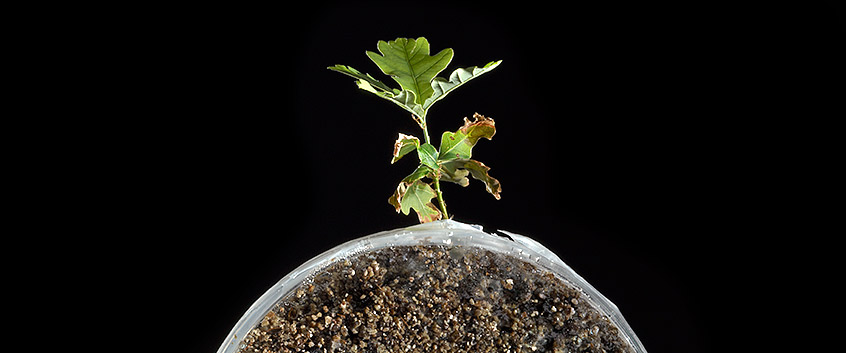
Department of
Ecology of Agroecosystems
How do interactions between plants, soil and microorganisms control key ecosystem functions such as biomass production, nutrient cycling and carbon storage? How are they influenced by soil properties or climate? How do they react to land management, loss of biodiversity or climate change? How can the use of ecosystems be adapted to rapidly changing environmental conditions? Can we ensure food security while also mitigating global change? Can we optimise soil processes such that we can significantly reduce the use of fertilisers and agricultural chemicals?
Climate change and species extinction pose new challenges for our ecosystems and jeopardise the functions and services they provide. Ensuring food security and preserving a healthy, liveable environment requires that we understand the interactions between land use and environmental change. This enables us to make site-specific recommendations for sustainable cultivation. As multiple ecosystem functions can often only be achieved simultaneously on a landscape scale, we are investigating the entire range of near-undisturbed forest ecosystems, grasslands and intensively farmed sites.
Healthy soils are of particular importance here. For example, the organic matter it stores is relevant both for the productivity of the sites and for limiting climate change. Soils have already lost large quantities of organic matter since the beginning of agricultural use, and these losses threaten to increase further as temperatures rise - with negative consequences for soil quality and greenhouse gas emissions. Adapted use should therefore maintain and ensure the organic matter content of the soil under future environmental conditions while providing balanced nutrients for plant growth.
The quantity of organic matter in the soil is linked to the input from plants. The turnover and residence time of carbon and nutrients in organic matter vary between microhabitats such as decomposing plant litter (detritosphere), mineral surfaces (mineralosphere) and soil in the immediate vicinity of living roots (rhizosphere). These are inhabited by different microbial communities that regulate carbon and nutrient turnover by producing extracellular enzymes. Because of their great diversity and a high proportion of inactive organisms, little is known about the functional relationships between microbial community composition and element cycling. Land use and environmental change are shifting the species composition and activity of plants and microorganisms, but their effects on soil processes are still poorly understood. In addition to dead plant material, residues of bacteria and fungi in the soil can also contribute to the formation of stable organic matter. The binding of organic matter to surfaces of reactive mineral particles reduces its degradability, potentially also with increasing temperature. The formation of mineral-associated organic matter is therefore important for long-term carbon storage in the soil. Our goal is to increase process understanding in these areas and develop concepts for adapted use of ecosystems.
We use a wide range of pedological, soil biological and molecular biological methods in combination with the analysis of stable isotopes and radiocarbon to draw relationships between element cycling and soil properties as well as microbial communities and their functions. In addition to the investigation of land use and management gradients in different regions, such as in the Biodiversity Exploratories (https://www.biodiversity-exploratories.de/en/), our research also relies on long-term agricultural trial plots (https://www.ufz.de/index.php?en=52125) and field experiments such as the Global Change Experimental Facility GCEF (https://www.ufz.de/index.php?de=39922).